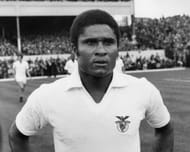The Lisbon derby, also known as Derby de Lisboa, has been regarded as one of the most important events in Portuguese football ever since the first encounter between Sporting CP and SL Benfica in December 1907.
The main reason for this rivalry to accelerate at such a fast pace during their first game was due to the transfer of eight Benfica players to Sporting on the same day, creating much controversy and anguish among the fans of Benfica.
Sporting won their first Derby match 2-1, following a goal by one of the Benfica players who had switched sides and another player’s own goal in the second half of the match.
The two clubs and its support were also faced by a class-divide. Estadio da Luz initially constructed by cement and money donated by its supporters, making it more of a people’s club. On the contrary, Sporting has always boasted of its support from the royalty, with many of the dukes, princes, kings and queens of Portugal were amongst their audience during early fixtures.
The founder of the club – Jose Alvalade enjoyed financial support from his viscount grandfather, having no problem attracting dignitaries of the highest order to join the club’s support.
This remained the same until 1960, when Benfica was able to render services of their fortune changer, a club legend in the years to come – Eusebio or better known to fans as O Rei. He is one of the biggest legends in the club’s history.
The arrival of Eusebio at Benfica
At the time Eusebio arrived at Estadio da Luz, both the rival clubs were equals with 10 domestic league titles each. But when he left Benfica in 1975, the club had won 21 titles as opposed to their rivals Sporting at 14 titles.
Such was the impact of Eusebio, who as a teenager was rejected by Benfica’s feeder club Grupo Desportivo de Lourenco de Marques (now Grupo Desportivo de Maputo, Mozambique), and was playing at Sporting’s own feeder club Sporting Clube de Lourenco Marques (now CD Maxaquene, Maputo, Mozambique).
This could have ended in Sporting’s favour had they realised O Rei’s talents and offered him a better contract then Benfica. Nonetheless, the Red side of Lisbon had signed a formidable legend who transformed Benfica into the unprecedented champions of Portugaldethroning Sporting, and was instrumental in helping his club secure the European Cup and placing them 7 titles ahead of their rivals by the end of his career at Benfica in 1975.
Sporting fans always feel an injustice was done to them and things would have been different had their club signed Eusebio from their own feeder club, which was not a Herculean task so to say.
Players of his class have been missing in the either of the clubs since that time and although the likes of Cristiano Ronaldo (Sporting) and Angel Di Maria (Benfica) have graced the Portuguese league earlier in their careers, they would move on to join much bigger clubs to realise their potential on the big stage.
Recent history
Sporting hasn’t won a title since 2002, although they have been playing well for the last two years since Bruno de Carvalho took over as the president of the club. They mounted a title challenge in 2014 which help in heating up the rivalry between the two clubs in the present context.
The red Estadio da Luz and green Estadio Jose Alvalade are separated by a highway, named after Benfica legend Avenida Eusebio da Silva Ferreira, a 2.2 km long stretch, which is usually enjoyed more by Benfica fans than their Sporting neighbours.
Today the rivalry might seem a bit lop-sided with Benfica enjoying the larger chunk of success. The Red side of Lisbon is ahead of the Green side with 34 Primeira Liga titles to 18 and 2 Champions League titles to 0 of Sporting.
Although FC Porto dominated the league for better part of the decade, both the rival teams at Lisbon have joined the race with Sporting playing better than in the previous years, keeping in the top 3 and Benfica winning the last two titles.


